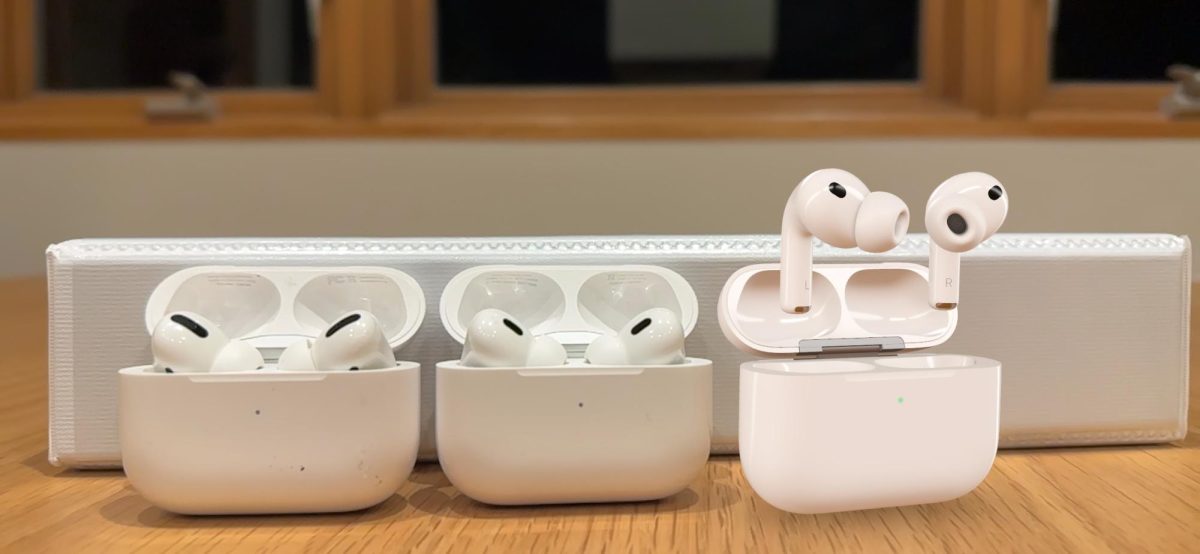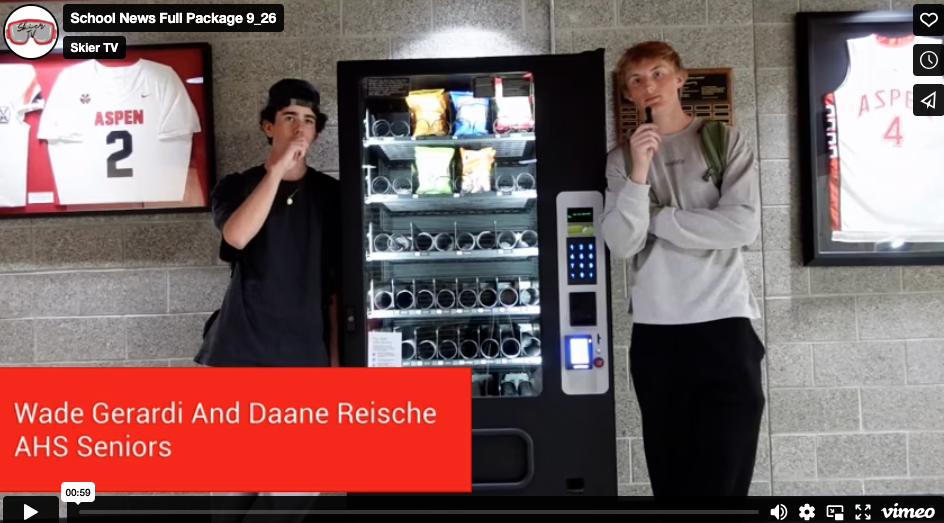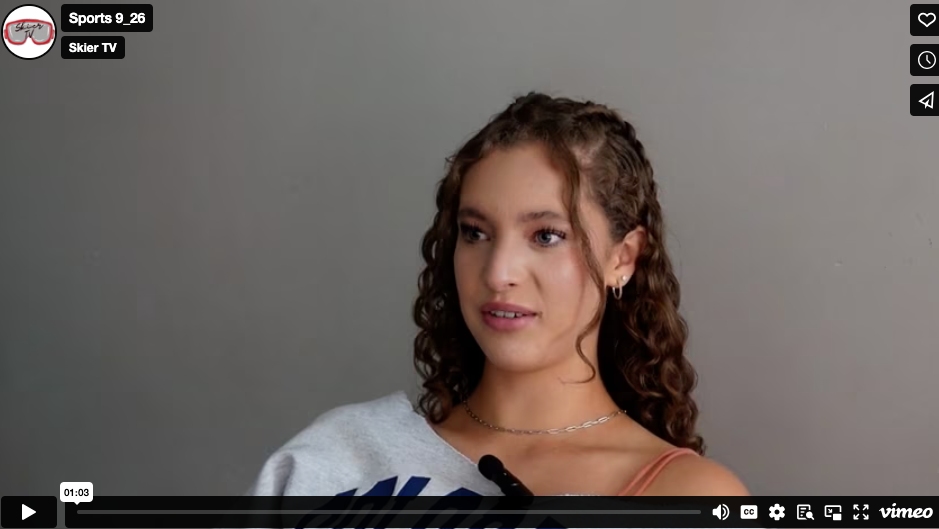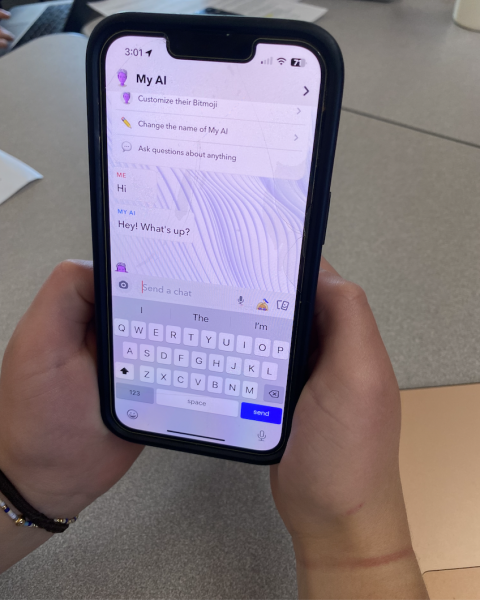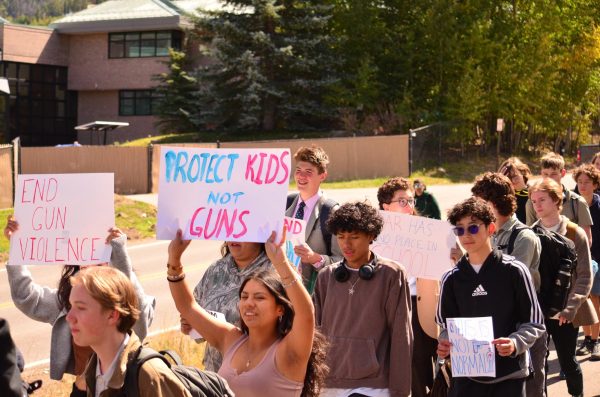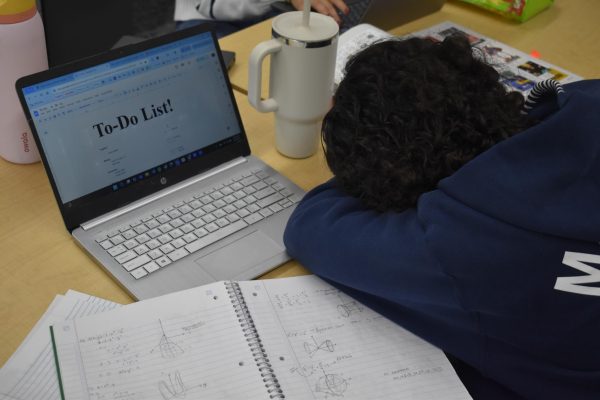The Exposure of Poetry into the Millenials
AHS sophomore Tristan Niskanen sits with renowned poet and lyricist Kendrick Lamar.
As April comes to a close, so does National Poetry Month. It is evident in our society today that poetry has impacted numerous lives, more than some may realize.
It is all too common for people to overlook or forget that rap, as in rap music, is an acronym for “rhythm and poetry”. This means that rappers are somewhat synonymous to poets, as poets are analogous to rappers when they apply their work to a rhythm.
What is perplexing about poetry is the shadow behind it. What inspires poetry to be written? A vast quantity of rap music today objectifies overcoming struggle and defeat, and remaining steadfast in hardship. Another quantity of the same music is ambiguous of the idolization of prostitution, gambling, drug consumption, racketeering, extortion, hatred among men, neighborhood and communal violence, and drug trafficking, among other things. One example would be the song “The Ten Crack Commandments” by Christopher Wallace, also referred to as The Notorious B.I.G. The lyrics purposely resemble the text of an instructional manual written to display the ins and outs of distributing crack cocaine. It considers the possibilities of a family member betraying and murdering another for monetary pursuits. So, what is this poetry truthfully exposing to us?
Poetry, like so many other forms of expository writing, exposes us directly or indirectly to the experiences of others. We create emotional sentiment to stories and experience that we live vicariously through. If you have ever cried or felt emotion during a movie, television show, play, musical performance of any sort, or while reading a book you may know this feeling. Poetry can expose us to so much beyond what we experience in our own lives. Many students at AHS would never have the opportunity to experience the outdoors as Thoreau did, as many wouldn’t have seen the light of day in the neighborhoods of Compton as Kendrick Lamar vividly captures in his poetry. Poetry opens our eyes to the world and shifts our perceptions of humanity as it changes around us.
How does this affect the students of Aspen High School? To start, it is best to acknowledge the irreversible impact that rhythm and poetry has played in shaping and developing our mindsets. Secondly, it is bizarre to think that we, the millennial generation, are one of the seldom generations alive and to ever live, (according to common knowledge) after being exposed to poetry through the medium of rap music.
In days before our respective births, poetry was often collected in compilations or inscribed into journals and dairies. Now, poetry is so common that it is played on the radio, played in the homes, and frequently played in schools. Do these anthems and anthologies suggest the acceptance of violence and acts of terror in our community, like drive by shootings and gang warfare, or do they promote peace and understanding, as well as self-esteem and respect among fellows? It is entirely possible that rap music could promote both, or neither.
In my collective and compiled opinion and theory, I believe that it exposes young and developing minds to an excellent source of innovation and creativity. The question I have, however, is how much of this creativity is a manifestation of mental illness? I am a student, and would require the opinions of multiple licensed psychologists to confirm or deny this theory. Therefore, my opinions come with a grain of salt.

Nathaniel Karbank is a junior at Aspen High School and plans to graduate with the class of 2016. He appreciates good writing, skateboarding, and innovative...


